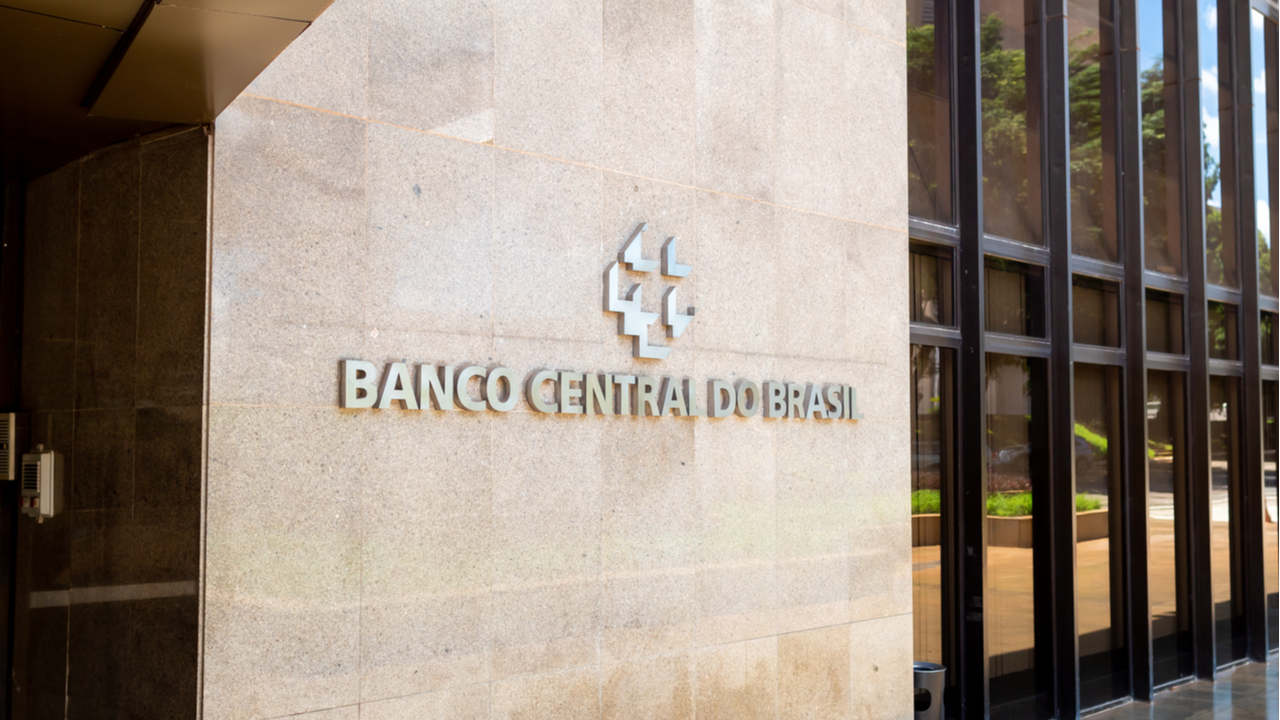 While blockchain monitoring has increased a great deal during the last few years, cryptocurrency mixers have seen significant use from those who don’t want their financial transactions tracked. Meanwhile, two mixing applications, Tornado.cash and Cashfusion, have helped crypto owners make their ethereum and bitcoin cash less traceable. The two applications combined recorded more than $8 […]
While blockchain monitoring has increased a great deal during the last few years, cryptocurrency mixers have seen significant use from those who don’t want their financial transactions tracked. Meanwhile, two mixing applications, Tornado.cash and Cashfusion, have helped crypto owners make their ethereum and bitcoin cash less traceable. The two applications combined recorded more than $8 […]
The Russian State Duma approved a bill on crypto taxation in early 2021 but the bill has yet to move any further.
The Russian Federal Taxation Service (FNS) is actively monitoring the cryptocurrency market to prevent tax evasion, FNS head Daniil Egorov said.
Cryptocurrencies can potentially cause “significant erosion” to Russia’s tax base, Egorov argued in a Monday interview with the local publication RBC.
But cryptocurrency transactions are still traceable and should be reported, the official said, adding that FNS is ready to deploy automated tracking systems to process big data volumes.
“When you get into the digital space, you still leave a trail somewhere. And it’s a matter of time before this trail is identified,” Egorov declared.
The official also noted that FNS is now coming up with ways of responding to crypto tax evasion practices as the authority looks to curb such activity rather than just to identify it. “We would like to find solutions that shut down a problem as a phenomenon rather than just identifying actions by a specific player,” Egorov added.
The Russian State Duma approved a bill on cryptocurrency taxation in the first reading in February 2021, requiring residents to report crypto transactions of a total amount exceeding $7,800 per year. In order to move forward with the second reading, lawmakers decided to assign a responsible committee, the State Duma Committee on Budget and Taxes, in mid-October.
According to Sergei Khitrov, founder of the Russian cryptocurrency event Blockchain Life, Russian crypto businesses could potentially generate as much as $4 billion worth of taxes per year. According to him, the local crypto community has so far demonstrated a “complete failure” to understand how to pay taxes on crypto.
Related: House passes $1T infrastructure bill with crypto tax for Biden's approval
The news comes as American lawmakers fight back against changes to tax reporting rules for crypto transactions over $10,000 in the newly passed infrastructure bill. The bill was initially approved by the Senate in August, which was met with a proposal for a compromise amendment by a group of six senators, including pro-Bitcoin (BTC) Senator Cynthia Lummis
 According to reports, the founder of the now-defunct Silk Road 2 marketplace has forfeited more than half-million dollars worth of bitcoin to British authorities. White’s Silk Road 2 admin handle was called “Cthulhu,” and he also dubbed himself as “DPR2.” Silk Road 2 Admin Thomas White Forfeits $667K in Bitcoin In April 2019, Bitcoin.com News […]
According to reports, the founder of the now-defunct Silk Road 2 marketplace has forfeited more than half-million dollars worth of bitcoin to British authorities. White’s Silk Road 2 admin handle was called “Cthulhu,” and he also dubbed himself as “DPR2.” Silk Road 2 Admin Thomas White Forfeits $667K in Bitcoin In April 2019, Bitcoin.com News […] Mauricio Moura, a current director of the Central Bank of Brazil, stated that anonymity won’t be a choice when making cryptocurrency transactions in the country. The representative stated that, sooner or later, all users would have their transactions identified by the government. These comments came at an event promoted by the Institute of Professionals for […]
Mauricio Moura, a current director of the Central Bank of Brazil, stated that anonymity won’t be a choice when making cryptocurrency transactions in the country. The representative stated that, sooner or later, all users would have their transactions identified by the government. These comments came at an event promoted by the Institute of Professionals for […]
“Many BTM operators feel that merely asking for a cell phone number is enough due diligence to absolve them of their mandated KYC requirements,” a Coinsource exec said.
Major Bitcoin (BTC) ATM operators in the United States are joining forces to fight illicit activity related to Bitcoin ATMs.
Bitcoin ATM operators DigitalMint and Coinsource have launched the Cryptocurrency Compliance Cooperative (CCC), a new association that aims to establish compliance standards for the Bitcoin ATM industry.
The new compliance effort has launched with support from major blockchain analytics firms like Chainalysis and Elliptic among its 15 initial members. The CCC is now encouraging participation from cash-based crypto money services businesses, regulators, financial institutions, as well as non-state and law enforcement agencies.
The association specifically targets Bitcoin ATMs to ensure know your customer (KYC) and Anti-Money Laundering (AML) compliance as this type of ATMs is often associated with a lack of KYC requirements. “Unfortunately, many BTM operators feel that merely asking for a cell phone number is enough due diligence to absolve them of their mandated KYC requirements,” Coinsource’s head of compliance Bo Oney said.
“Such lax provisions provide a safe haven for bad actors to abuse the machines for nefarious purposes. The CCC is seeking to bolster regulatory requirements for the benefit of all BTM users and operators. This will require input from the most knowledgeable in the industry, all with the goal of making the cash-to-crypto space as safe as possible for consumers,” he added.
Seth Sattler, director of compliance for DigitalMint and leading CCC contributor, said that illicit use cases related to the Bitcoin ATM industry are well documented by several law enforcement agencies, including fraud, elder abuse and drug and human trafficking.
Related: Global crypto ATM installations have increased by 70% in 2021
“While a small number of Bitcoin ATM operators go above and beyond with KYC and AML protocols, others in the cash-to-crypto industry simply turn a blind eye and are complacent to these bad actors by simply applying the bare minimum customer protections, which in many cases allow for completely anonymous transactions,” Sattler noted.
Similarly to a traditional ATM, a Bitcoin ATM, or a BTM, is a kiosk allowing users to purchase or sell Bitcoin and other cryptocurrencies by using cash or debit card. According to data by BTM tracking website How Many Bitcoin ATMs, there are currently more than 42,000 BTMs in the United States.
In February, the State of New Jersey Commission of Investigation discovered that 75% of the BTM operators in the state allowed certain transactions without requiring the customer to provide any information outside a cell phone number. Last year, an exec from blockchain analytics firm CipherTrace predicted that Bitcoin ATMs would face stricter regulations worldwide, with countries including Canada and Germany already moving to strengthen necessary AML regulations.

Democratic Representative Bill Foster has called for legal power to identify wallet holders and reverse crypto transactions in instances of criminal behavior such as ransomware attacks.
Bill Foster, Democratic Representative and co-chair of the Congressional blockchain caucus, has called for a regulatory framework that would enable third parties to reverse fraudulent or criminal transactions.
Foster is a physicist and a Democratic Rep for Illinois. The blockchain caucus is co-chaired by Democratic Rep Darren Soto, and Republican Reps Tom Emmer and David Schweikert.
Speaking during an online event for news outlet Axios, Foster asserted that unless the Congress or the public can come up with a different solution to ransomware, U.S. regulators need to introduce a legal framework that can “unmask” crypto wallet holders’ identities and reverse crime-related transactions.
The Democrat described the legality of reversing transactions as one of “most fundamental decisions about crypto assets,” and notes that regulators need to be asking:
“Is there a court that you can go to unmask the participants, but also is there a trusted third party or court that you can go to, to reverse fraudulent or mistaken transactions?”
The 65-year-old notes that while his comments “will drive the crypto purists berserk” who value anonymity and uncensorable transactions as core features of crypto, those who have a large amount of their net worth held in digital assets are “going to want to have that security blanket of a trusted third party that can solve the problem.”
The news did of course drive crypto purists berserk, with a thread about Foster’s comments on subreddit “r/CryptoCurrency” sparking a negative reaction earlier today.
User “DepNeanderthal” commented that “anyone that trusts this guy’s ‘trusted third party’ is a sucker. Government and trust are as close to each other as the North and South Pole.”
While user “Justin534” noted that it's “literally not possible unless governments attack a network. Which they honestly could actually.”
Foster appears to only want the power to be used in exceptional cases. Speaking with Axios about China’s regulatory approach to cryptocurrency, which has been to essentially ban the entire sector, Foster notes that the U.S. needs to find a common ground and more balanced approach, in which anonymity is respected “99.9% of the time” under normal circumstances.
“But in those rare instances where something fraudulent, criminal or mistaken, as happened, that you have to be able to unmask and potentially reverse those transactions,” he reiterated.
Related: Bipartisan bill to study blockchain and crypto passes US House of Representatives
The use of cryptocurrencies to facilitate criminal activity appears to be a key issue for Foster, and he highlighted in an April 5 media release that a lack of regulation is enabling illicit behavior:
“One of the border patrol agents told me that most of the payments made for human trafficking are now being made with Bitcoin, simply because it was not legally traceable.”
 The Financial Action Task Force (FATF) has published the organization’s 12-month review and the research highlights that only 45% of the 128 reporting jurisdictions have complied with AML/CFT policy and FATF recommendations. The annual review stresses that the “lack [of] effective” regulation makes it “challenging for competent authorities to follow the transaction trail, buying more […]
The Financial Action Task Force (FATF) has published the organization’s 12-month review and the research highlights that only 45% of the 128 reporting jurisdictions have complied with AML/CFT policy and FATF recommendations. The annual review stresses that the “lack [of] effective” regulation makes it “challenging for competent authorities to follow the transaction trail, buying more […]
Crypto and blockchain industries need to play by the rules to realize their full potential, Concordium CEO says.
The anonymity of Bitcoin (BTC) and other cryptocurrencies is a hot topic in the crypto space. While the transactions are open to track in a public blockchain, it is challenging to link a transaction with a real-life person in many use cases. As an identity-centric platform, Concordium takes a different direction by offering complete transparency.
“The time has come for the blockchain industry to respect the general rules of society,” Concordium chairman Lars Seier Christensen said in an announcement. The launch of Concodium Blockchain marks the end of the era of anonymity, opacity, and the lack of transparency, he added.
Developed and advised by leading executives and board members from corporations like Volvo, Ikea, Saxo Bank, MasterCard, and others, the Concordium Blockchain and its cryptocurrency GTU will launch the mainnet on June 9.
According to the release, Concordium believes credible participants looking to enter crypto and blockchain are hindered by the lack of a regulation-friendly environment, which delays the industry’s broader adoption.
The Concordium platform offers “guarantees of governance and transparency, without compromising privacy," the announcement reads. Users are identifiable and the provenance of every transaction is trackable to meet the needs of global regulators.
As Cointelegraph previously detailed, Concordium utilizes a two-step process to achieve privacy without anonymity. Identities are verified via Know Your Client providers. The identity providers store the personal data behind a user ID reference, issuing an identity certificate. This is then stored on the blockchain in an encrypted form.
On-chain anonymity revokers can decrypt these certificates to extract the user ID. This enables governments to use the identifier with the identity provider to reveal real-world data, but only if they provide official and specific mandates like court orders.
“This industry needs to realize that without trust and acceptance, there is nothing,” said Concordium chief executive Lone Fonss Schroder. She added:
“Global business is rules-based. The sooner the blockchain and crypto industry wakes up to the need to play by the rules, the sooner the full potential of blockchain will be realized.”
Earlier this year, Concordium raised over $41 million from private and strategic sales, valuing the company at $4.45 billion.

The collective's power has been waning in recent years, showing more bark than bite.
It’s the classic Anonymous modus operandi: a monologue worthy of a super villain, a perceived attack on an individual right or public good, some guy in a Guy Fawkes mask, and a whole lot of fizzbang-wowie video effects and voice distortion.
But as the hacktivist collective takes aim at a new target in Elon Musk, the latest “expect us” threat prompts the question: who cares?
Yesterday, a video purportedly from the Anonymous collective warned that there is now a joint intelligence working against him:
Oh fuckhttps://t.co/f8A4baYgWU
— Peter McCormack (@PeterMcCormack) June 5, 2021
The monologue was meandering, noting that “your fanboys overlook these issues because they are focused on the potential good that your projects can bring to the world,” taking aim at Musk’s background as the heir to a south African mining company, and accusing him of attempting to “create a Bitcoin Mining Council was rightly seen as an attempt to centralize the industry and take it under your control.”
What really attracted the ire of this particular group, however, is that smaller fry investors may have been negatively impacted by Musk’s recent Twitter shenanigans.
“Reading from the comments on your Twitter posts, it seems that the games you have played with the crypto markets have destroyed lives. Millions of retail investors were really counting on their crypto gains to improve their lives,” the masked man grumbles.
Hey @elonmusk, I just met Martin, a Lyft driver in Miami, who told me he lost almost $10,000 investing in Dogecoin - which he got into because of your Twitter account. Maybe it's time to calm down.
— Jon Rice (@JonRiceCrypto) June 4, 2021
Anonymous is hardly the only party to have taken issue with Musk’s cynical Tweeting as of late, but it’s unclear if they can do something about it.
The group’s power seems to have waned in recent years. Their peak arguably came during Project Chanology, an effort aimed at delegitimizing and degrading the power of the Church of Scientology. They attacked websites, published secret information, and even sent a near-naked man covered in pubic hair and vaseline to trash a Church location. Bless you, Agent Pubit.
In recent years, their successes have been fewer while their threats have been many. Recent targets include the government of Nigeria, the Minneapolis police department, and the prison system of Thailand. In all instances, it’s unclear what, if any, battles they managed to win.
The efficacy or legitimacy of Anonymous' efforts are almost irrelevant, however. Anonymous and blockchain ideology are two overlapping, but ultimately separate intellectual movements, and incidents like this video highlight the differences between the two.
Bitcoin was founded by a pseudonymous individual or collective named Satoshi NAkamoto. Satoshi chose to step away from his creation, freeing the tech of statements like Anonymous'. Bitcoin doesn't need anyone's help; it's an elegantl designed network which will all but certainly outlast Elon Musk, and it may even outlast all memory of his achievements.
This is how cypherpunks fight: with code, not cosplay. Anonymous, respectfully, we're good.